The Celluloid Closet by Vito Russo was a groundbreaking work which shone a spotlight on the shameful way gay people were presented in film through the years. If you were gay in a movie you usually ended up dead in the last reel- from murder, suicide or even a fallen tree (The Fox). For the most part, especially in early films, gay characters were usually flamboyant, prissy and painfully obvious. The brunt of a straight joke. But while I’m aware of all this, I don’t have that sense of anger when I watch a bunch of effeminate characters in antiquated films. Of course, I know it’s an awful stereotype and it’s meant to be demeaning, but, God forgive me, they make me laugh. And quite frankly, it wasn’t any fault of the actors that played them. Just because they were good at playing prissy and nelly and sometimes made a career of it, so fucking what? Should we cut out all their scenes and pretend we were more “woke” in cinema of the 30s, 40s and 50s? We weren’t. We still aren’t. But we should learn from our cinematic history, for better or worse.
So, I intend to salute our old “gay aunties” in films.
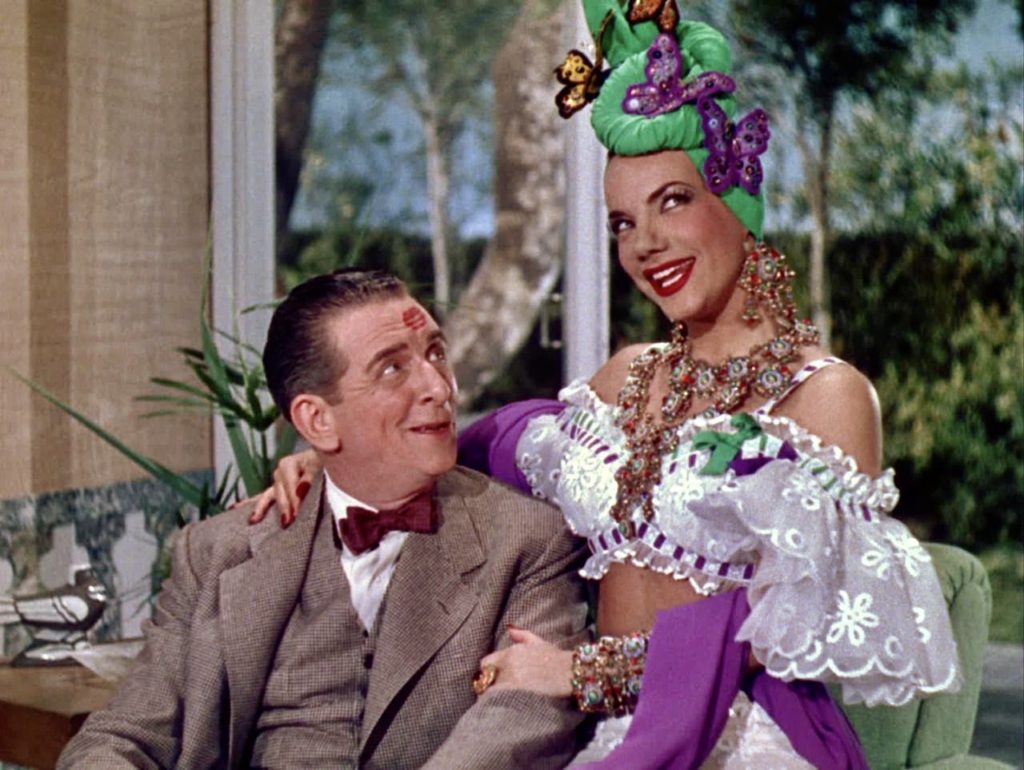
Edward Everett Horton. Everyone always says Fred Astaire was great because of Ginger Rogers, who danced every step as he did, except backwards and in heels. But where would those movies be without Edward Everett Horton? He usually played Fred’s closest male friend, and always had a mannish wife who rolled her eyes every time he came into the room. He was forever wringing his hands foreshadowing doom and gloom. The ultimate drama queen. But he was such a joy on screen. To see him let loose on the dance floor- with a serape and Mexican hat during the movie In Caliente is just sublime. Or covered in Technicolor kisses in The Gang’s All Here being chased down by that other delightful cinematic alien Carmen Miranda– how fabulous is that?
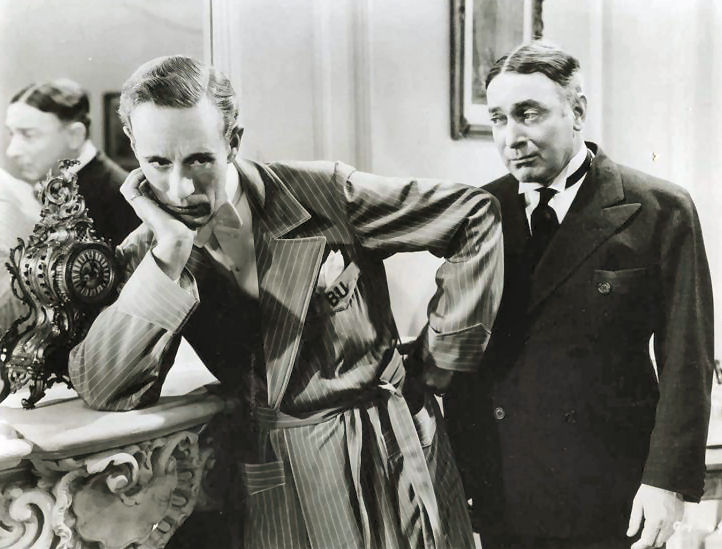
Eric Blore. The beloved English actor was forever the devoted servant or butler in films and always ready to scrunch up his face in annoyance- he was the master of the slow burn. He was either a waiter or valet in the Fred Astaire films, and gave hilarious performances in Preston Sturges’ Sullivan’s Travels (again as valet) and as a “Sir” in the uproarious The Lady Eve. Perhaps the most telling scene he ever did was in the film It’s Love I’m After (1937) where he plays Digges, the devoted manservant of the Shakespearean actor Basil Underwood (Leslie Howard). Basil moans, “Why does no one love me?” “I love you sir,” says Digges. “Oh, don’t confuse the issue,” replies the irritated thespian.
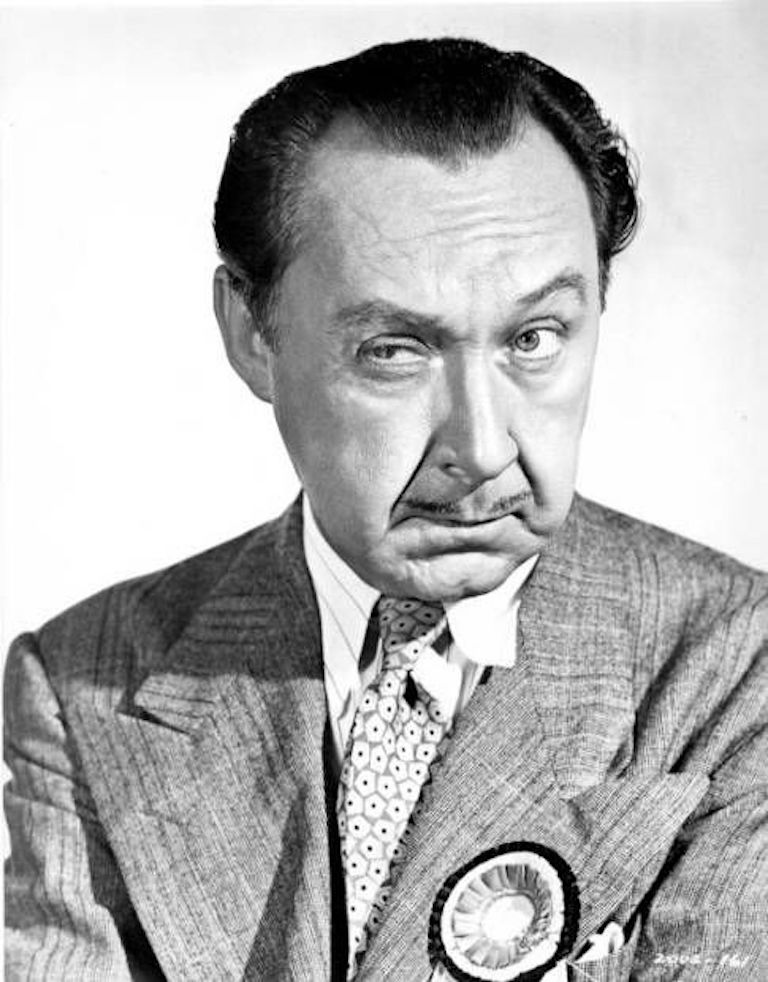
Franklin Pangborn. Franklyn was forever playing the hotel concierge, or the snooty host at a restaurant. He always seemed exasperated. And ready to throw a snit fit at a moment’s notice. In the film Only Yesterday (1932) he plays a decorator, and when he sees something at a shop window, he exclaims, “Look! That heavenly blue against that mauve curtain, doesn’t it excite you? That kind of blue just does something to me.”
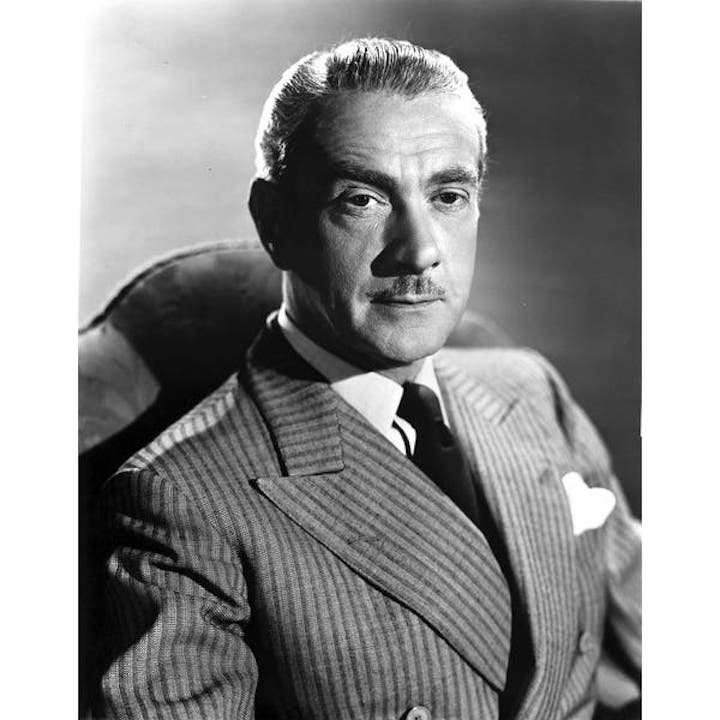
Clifton Webb. Webb was so good at playing erudite, educated snobs, with little patience for fools. His Sitting Pretty films were popular just for the humorous (and non-threatening) image of him babysitting kids. When he drops a bowl of oatmeal on a fussy kid’s head, audiences everywhere cheered with approval. Even in the great film noir Laura, his obsession with the beautiful Laura (Gene Tierney) seems more about control than a sexual obsession. Found in the manuscript of director Jean Negulesco’s memoir was a funny anecdote where the director boldly asked Webb, “Are you a homosexual?” to which Clifton haughtily replied, “Devout, my boy- devout.”

Grady Sutton. With his doughy, round sweet face, Sutton was good in his early sound pictures as harmless Southern hicks, but is widely remembered in the films he made for W. C. Fields as the sweet but dim boyfriend of one of his daughters. What’s so great about Grady is that he can just enter the frame of a movie and you already get the joke. He just adds that right element in comedy, and not just because he seemed like a big old sissy on screen. There’s a warm, vulnerable and humorously downtrodden quality to him. He was great friends with director George Cukor who always snuck him into his movies when he could. But the image of him that I cannot forget is when he leaps up on a table, shrieking, thinking he’s seen a mouse in Movie Crazy (1932).
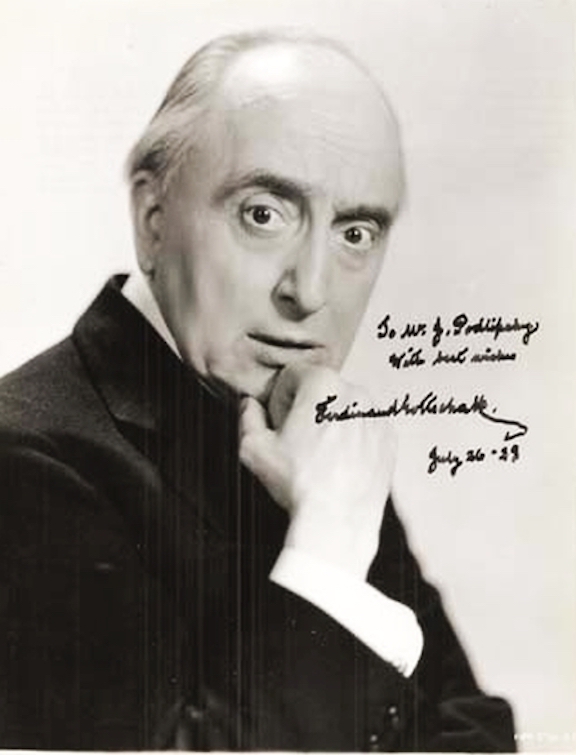
Ferdinand Gottschalk. Ferdinand played Pettigrew, the fiercely loyal (and gay-ish) secretary to a powerful female executive of an automobile factory (Ruth Chatterton) in the movie Female (1933), and it’s a fascinating performance. He is always lurking in the wings, trying to organize, protect, humor and give advice to his boss. You just wouldn’t want to cross him. The only other assistant I can recall like this was the one Harvey Fierstein voiced as Homer Simpson’s faithful assistant Karl on that great episode of The Simpsons: Simpson And Delilah. Gottschalk pops up in plenty of other movies as Dukes, tour guides or museum officials, but his role in the pre-Code Female really stands out.
Now especially in pre-Code movies, sissies would pop up from time to time. Here are just a few memorable ones:
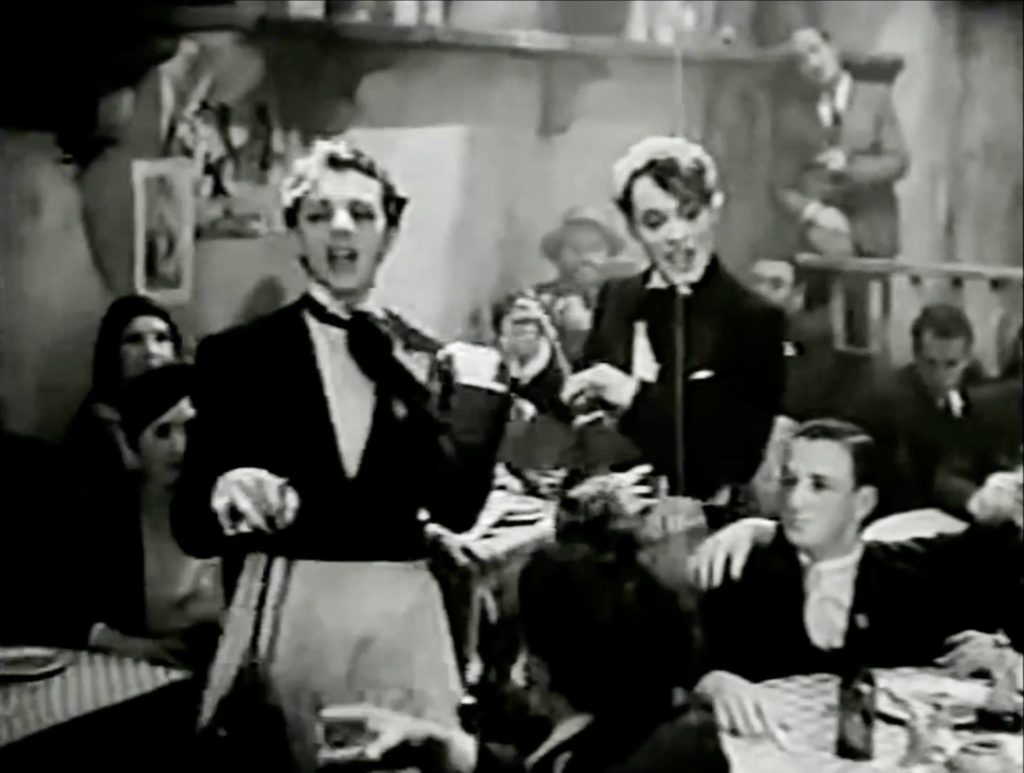
Call Her Savage (1932) In this racy Clara Bow film there’s a scene in a gay bar (probably a screen first) where the “Rocky Twins” are prancing around the bar in frilly outfits, gaily singing a song to a delighted crowd of sophisticated gays.
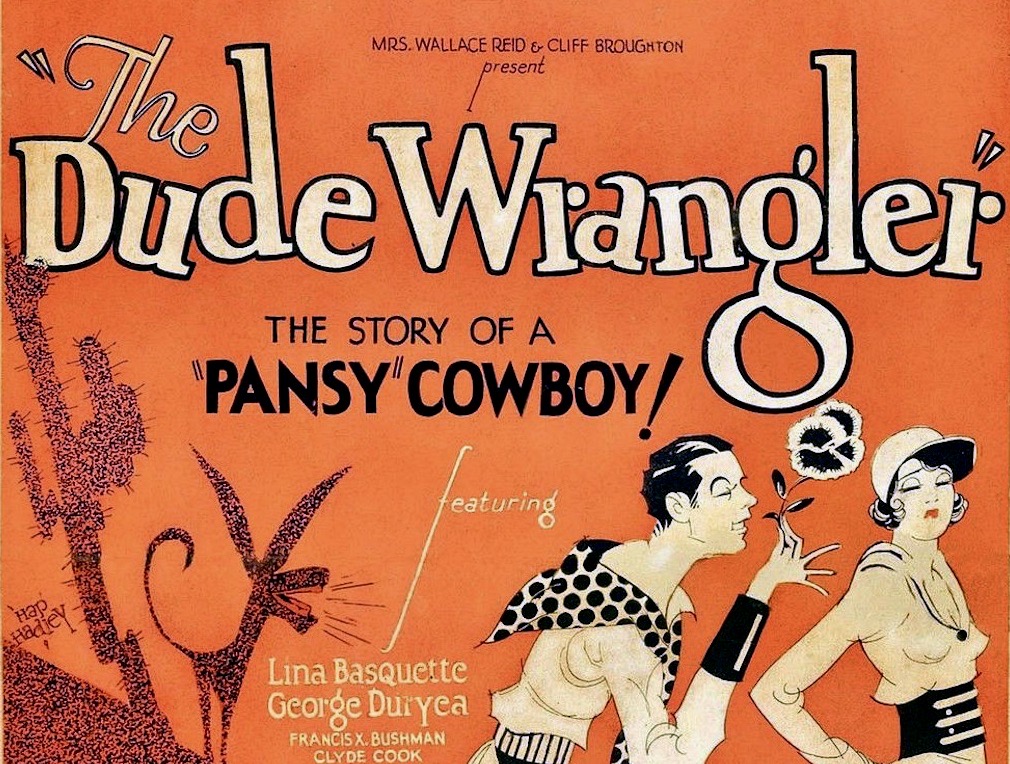
The Dude Wrangler (1930). This lost film was about an effeminate dandy who joins a dude ranch to butch up before his marriage. The ad screamed: “The story of a pansy cowboy- oh dear!” I’d kill to see this one.
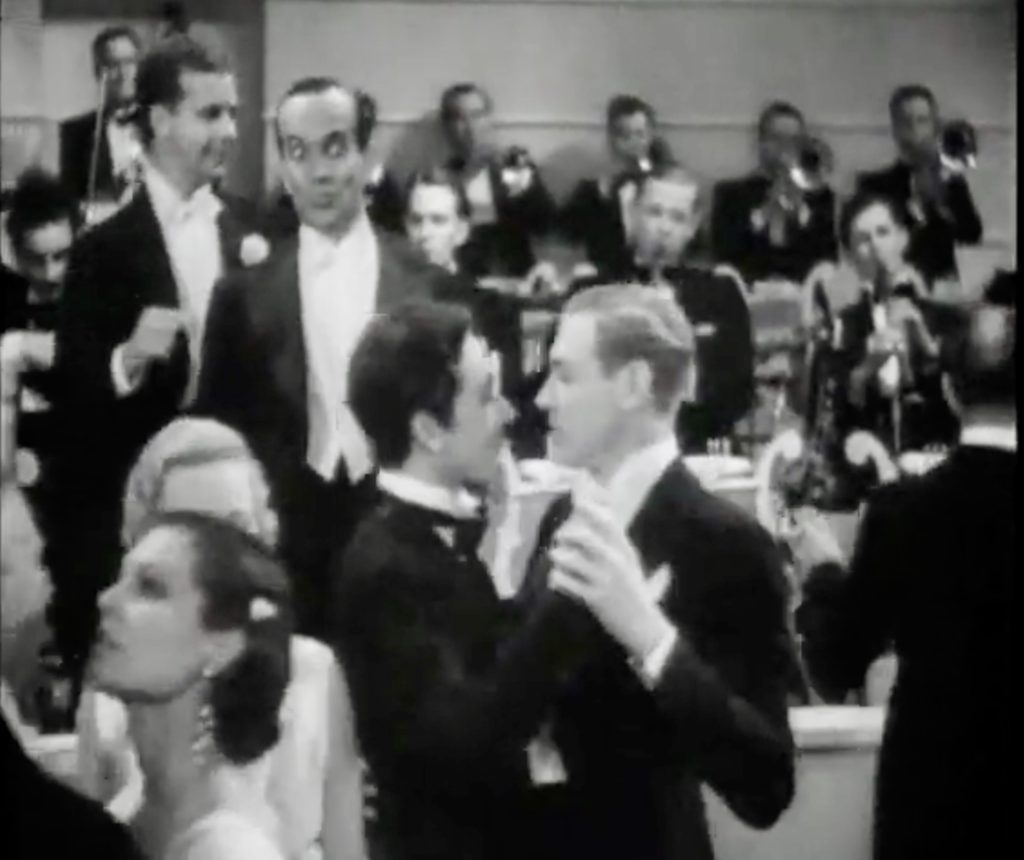
Wonder Bar (1934). There’s a great moment in this Al Jolson film, set in a nightclub, where a couple is dancing and a man taps them to “cut in.” The woman assumes it’s she he wants to dance with but it’s her male partner and they dance off while Al Jolson, as the orchestra leader, rolls his eyes and says, “Boys will be boys!”

The Broadway Melody (1929) This early musical portrayed chorus girls having difficulty getting out of their dressing rooms with their huge headpieces. The designer flounces in and cries out in desperation, “Girls! Girls! My Hats! Be careful of my hats, I won’t allow you to ruin them.” The wardrobe mistress confronts him, “Say, listen. I told you they were too high and too wide.” He huffs at her, “Well, big woman, I design the costumes for the show, not the doors for the theater.” “I know that,” she sarcastically replies, “If you had, they’d have been done in lavender.”

The Public Enemy (1931) In the movie that made James Cagney a huge star, Cagney is rising in the bootleg business and decides to buy himself a suit. The effete clerk is measuring him and Cagney pulls out his pants and says, “remember- plenty of room in there,” to which the clerk squeezes Cagney’s upper arm and lasciviously remarks, “Oh sir- here’s where you need the room- what a muscle…”

Hell’s Highway (1932) Richard Dix stars as a convicted bank robber in this expose on the brutal conditions in prison farms. Chain gangs are forced to toil on railroad and are beaten by sadistic guards. Burgess, an effeminate man who works in the mess hall alerts a guard that one of the spoons is missing. “Oh yeah? That’s alright- today at noon they don’t get any spoons. Make a soup and make it thin.” “You’re so smart, Mr. Skinner,” he lisps back, and the guard smacks him playfully on the backside. “Oooohhhh, Mr. Skinner…”

Our Betters (1933) Constance Bennett plays a wealthy socialite who is visited by “Mr. Ernest” (Tyrell Davis), a flamboyant fop (even wearing lipstick) who flounces into the room and announces, “My dear Lady George, I’m sure I’ll get into no end of trouble.” He also apologizes “for showing up in my town clothes “(full ascot and boutonniere), “but your chauffeur said there wasn’t a moment to lose.“ When a female guest embraces the hostess he cries out, “what an excellent spectacle- two ladies of title kissing each other.”

Palmy Days (1931) Eddie Cantor plays a rube who accidentally becomes efficiency expert at the Clark’s Bakery (“Crullers With A New Twist”). Right in the beginning of the film a well-dressed man comes in to order a cake. He’s a real dandy and when the woman taking the order asks what he wants, he says: “a birthday cake- chocolate…all chocolate…I love chocolate…” When she asks if he would prefer a little icing “rose” on top he sighs and says, “No, make it a pansy…”

Diplomaniacs (1933) The comedy team of Wheeler and Woolsey play two boobs who end up representatives at a peace conference in Europe. The film has the two waking in one huge bed. They rise up- one wearing long johns and a stocking hat, the other in a sleeping bonnet and frilly robe and begin singing “what a glorious day…” Oh, Mary!

She Done Him Wrong (1933) Mae West enjoyed slipping risque material into her films before the “Code” came crashing down on her. In this film, she plays a nightclub singer visiting an old beau in prison. As she walks through the jail she says hello to all the prisoners (who, of course, she knows) including “The Cherry Sisters”- two prisoners locked arm in arm in one cell together.

The Bride Of Frankenstein (1935) The devious Dr. Pretorius shows up to blackmail Dr. Frankenstein into creating a “bride” for the monster. He is played by the wonderful Ernest Thesiger, who imbues him with such over-the-top dripping irony it’s hilarious. In a later sequence, he is discovered in the catacombs under the castle, drinking wine on a casket (with a laid-out skull, bones and lit candles), chuckling to himself. The Frankenstein monster lumbers in and Pretorius wryly says, “Oh, I thought I was alone.” Then, “have a cigar- it’s my only weakness…”
And if all that wasn’t appalling enough, even pre-Code cartoons threw in sissies for cheap laughs. Here are two you can find on YouTube to horrify your friends:
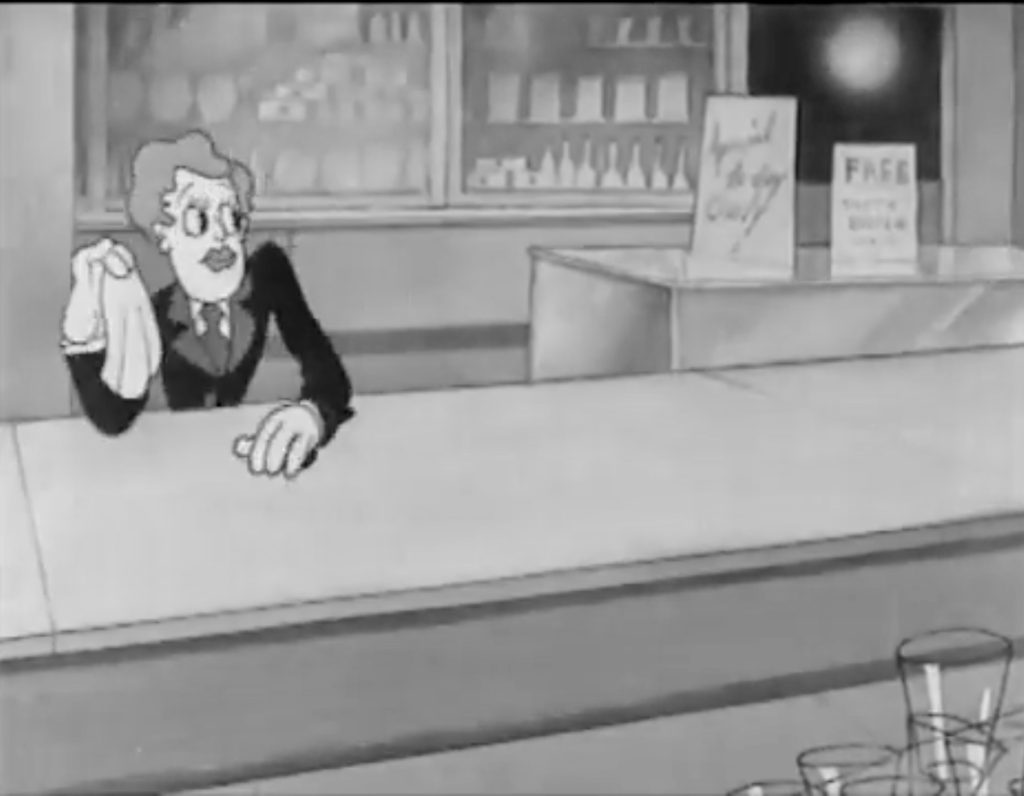
Soda Squirt (1933) all these celebrities show up for Flip The Frog’s new Drug Store and soda fountain. The Marx Brothers, Mae West, Laurel & Hardy are all there and then in flounces this big queen, dramatically waving a handkerchief and ordering a “chocolate soda, please.” Flip is so flirtatious with Mae West he mixes a weird concoction that turns the gay guy into a Mr. Hyde monster who rampages through the store. That is until a squirt of “Eau de Pansy” perfume changes him back to normal.

Mary’s Little Lamb. This 1935 “Comicolor” oddity takes place at a schoolhouse where a pet lamb upsets the talent show during the last day at school. The most amazing little performer is “Percy” a curly-haired, bespectacled boy whose act is just to flounce around in circles waving his arms in a nelly manner.
True, all these examples on screen then are horrible. But erasing them all because they offend today’s sensibilities is the worst possible thing to do. We need to understand what we’re fighting for. And watching many of these “sissy” performances make you see the incredible progress (however slow) that we’ve made for queer representation on film.
So, when it comes to watching Edward Everett Horton, Franklyn Pangborn, Grady Sutton and the others in movies, just remember:
We’re here, they’re queer, get over it!

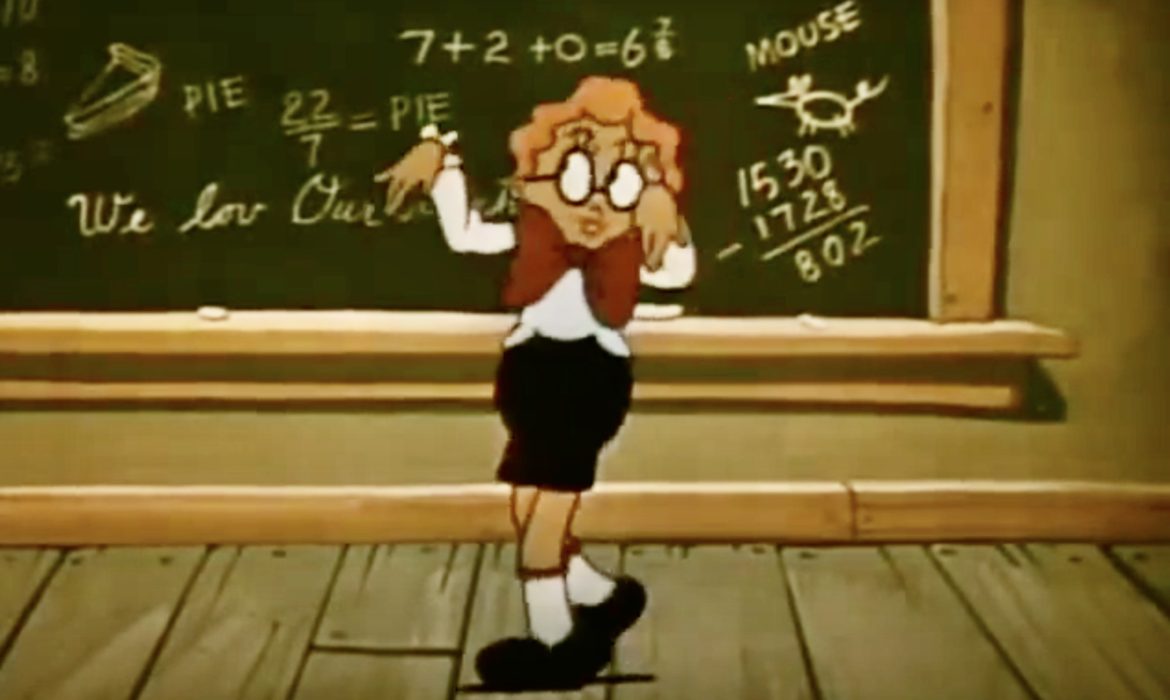
What a sweet tribute to the history of gays in film! So important! So cool! Thank you Dennis!